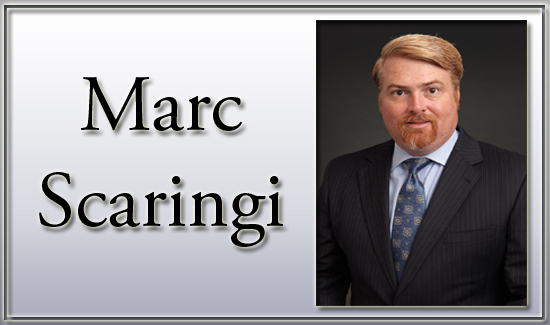In his new book, “A Higher Loyalty,” ousted FBI Director James Comey writes about about “ethical leadership,” and tries to convince his readers that he’s been the epitome of that ideal throughout his career.
However, in just one prominent example he cites, and more fully explained during a recent television interview, Comey discredited his book’s theme as he explains the considerable extent to which he allowed politics to influence his leadership of the FBI.
Comey writes about his love for the FBI and the Department of Justice because, “they play no role in politics, because they operate independently of the passions of the electoral process.”
During his recent television interview with George Stephanopoulos of ABC’s “20/20”
news program, Comey claimed about his tenure as FBI Director, “I really wasn’t making decisions based upon political fortunes.”
Yet, in his memoir and interview, Comey reveals he made arguably his most monumental decision as FBI director based upon just that.
In the book, Comey explains why he revealed to the U.S. Congress that, just 11 days before the 2016 presidential election, he had reopened the bureau’s investigation of Clinton for her mishandling of classified materials as secretary of state.
Stunningly, Comey admits he took this action because he considered the political fortunes of Clinton, assumed she would win the election and did not want to undermine the legitimacy of her presidency.
Comey wrote, “It is entirely possible that because I was making decisions in an environment where Hillary Clinton was sure to be the next president, my concern about making her an illegitimate president by concealing the restarted investigation bore greater weight than it would have if the election appeared closer or if Donald Trump were ahead in all polls.”
During the 20/20 interview, Comey was even more emphatic.
Stephanopoulos asked: “At some level, wasn’t the decision to reveal influenced by your assumption that Hillary Clinton was going to win and concerned that if she wins, this comes out weeks later that is taken by her opponents as a sign she’s an illegitimate president?”
Comey responds, “it must have been,” explaining further that he “was operating in a world where Hillary Clinton was going to beat Donald Trump. And so I’m sure that it was a factor.”
Now Comey comes clean – he read the polls, prejudged the election outcome and then made the decision to protect the “legitimacy” of the future Clinton presidency.
Although this revelation is perhaps the most striking example of how Comey made decisions based upon political considerations, there are several others.
Comey admitted to Stephanopoulos that he was worried that then President Barack Obama’s Attorney General and Comey’s nominal boss, Loretta Lynch, was trying to protect Clinton during the FBI’s investigation.
Comey recounts how he went to Lynch to coordinate their public statements about the Clinton investigation.
Lynch, a strong Clinton supporter, instructed Comey to use the word “matter” instead of the correct, but politically harmful term, “investigation.”
Comey admitted Lynch’s instruction made him “uncomfortable.” But he dutifully carried it out.
In “A Higher Loyalty,” Comey wrote he was concerned when as president Obama made two public statements about the then ongoing FBI investigation of Clinton that “seemed to absolve her.”
Comey then tried to excuse the president’s conduct by explaining Obama, “…felt a pressure in the political environment because he wanted Hillary Clinton to be elected, to give her a shot in the arm.”
Comey now claims Obama’s actions were inappropriate. But, like with his boss, Lynch, Comey did not object or say so at the time.
An ethical FBI Director would have rebuked Obama for, during an FBI investigation, essentially exonerating its target.
And that same director would have rebuked Lynch for instructing him effectively to coordinate his public statements about the investigation with the talking points of its target.
Comey titles his book, “A Higher Loyalty.”
Yet, his actions and inactions proved he had a higher loyalty not to the rule of law, as he claims, but to his superiors, Obama, Lynch and, in his mind, the future president, Hillary Clinton.
Comey’s book and interview undermine his claim to be an “ethical” leader and give ample fodder to his critics who say the “fix was in,” that the Obama administration would never prosecute its candidate, the person they all believed would most assuredly and shortly become the next president of the United States.







